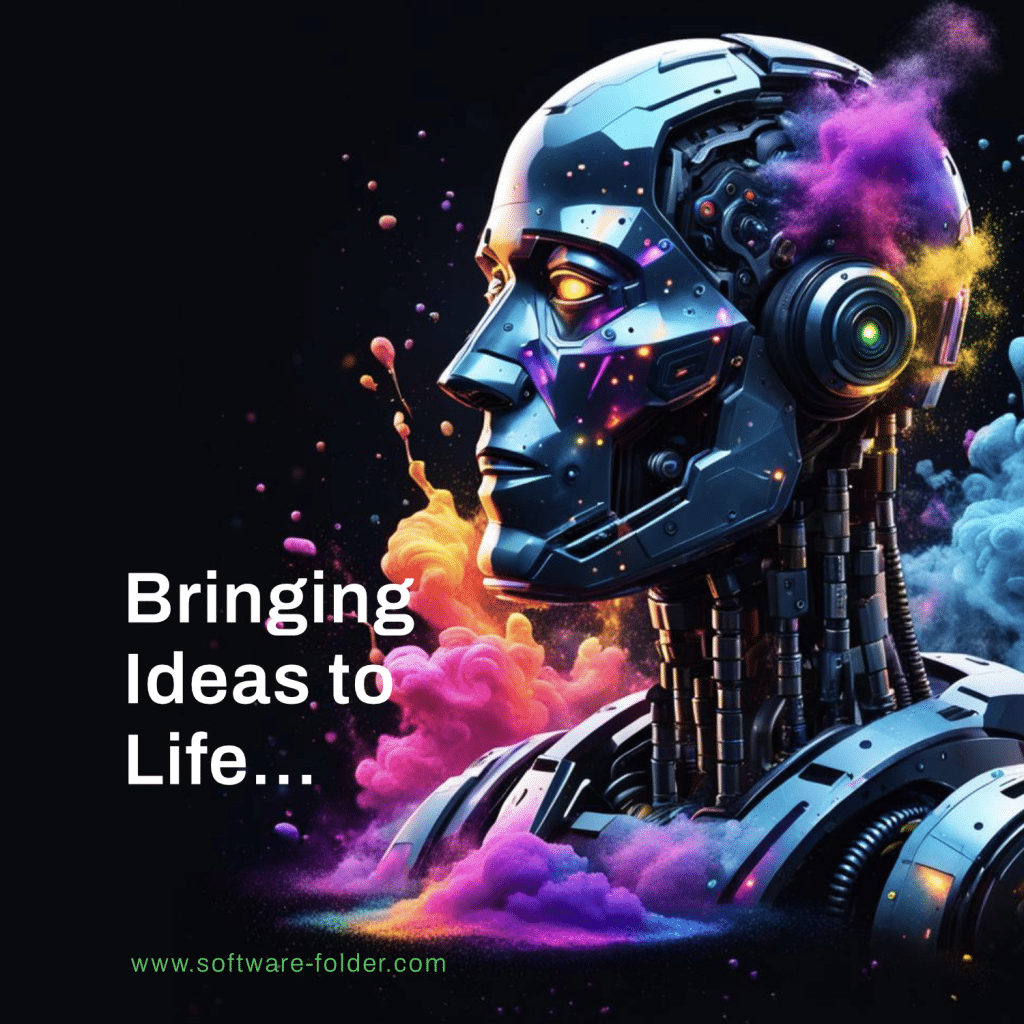
How valuable are your skills? Your skills are your personal ticket that makes you a valuable contribution to the workplace. With some level of proficiency, you should be able to perform tasks efficiently, solve problems effectively, and adapt to new challenges. Proficient skills enable you to meet job requirements, collaborate with colleagues, and contribute to your organization’s goals…
…Possessing strong skills can increase your employability, open up opportunities for career advancement, and enhance your overall job satisfaction. Investing in skill development is essential for staying competitive in today’s rapidly changing job market and ensuring long-term professional growth.
Historical Evolution of Technology and Skills
Skills are the abilities and expertise that individuals develop through learning and practice, enabling them to perform tasks effectively. These can be categorized into various types such as cognitive skills, technical skills, interpersonal skills, and physical skills. Cognitive skills involve mental processes like critical thinking, problem-solving, and decision-making.
Technical skills are the specialized knowledge and abilities required to perform specific tasks, often associated with particular professions or industries. Interpersonal skills, also known as soft skills, include communication, empathy, and teamwork. Physical skills involve bodily coordination and strength, such as those needed in sports or manual labor.

The Value of Skills
The value of skills lies in their ability to enhance productivity, efficiency, and innovation. They are crucial for personal and professional development, enabling individuals to perform tasks with competence and confidence. In the workforce, skilled individuals are often more competitive and can command higher wages.
From a broader perspective, skills contribute to societal progress by driving economic growth, improving quality of life, and fostering social cohesion. In rapidly changing environments, the ability to acquire and adapt new skills is particularly valuable, allowing individuals and societies to stay relevant and competitive.
Throughout history, certain skills have had profound impacts on societies and the way we live, communicate, and preserve our existence. The development of agricultural skills allowed early humans to transition from nomadic lifestyles to settled communities, leading to the growth of civilizations. Writing and literacy skills enabled the recording and dissemination of knowledge, preserving cultural heritage and fostering education.
In the industrial age, technical skills in engineering and manufacturing revolutionized production processes, leading to urbanization and economic expansion. More recently, digital skills have transformed communication, enabling instant connectivity and information exchange on a global scale. These pivotal skills have collectively shaped human progress, influencing social structures, economic systems, and cultural evolution.
Ethical and Future Concerns
The emergence of Artificial Intelligence (AI) has brought about significant advancements but also common fears among people. One prevalent fear is job displacement, as AI and automation can potentially replace human labor in various sectors, leading to unemployment and economic instability. There is also concern over loss of privacy, as AI systems often require vast amounts of personal data, raising issues around data security and surveillance.
Ethical concerns are prominent, particularly regarding the potential for AI to make biased or unfair decisions, perpetuating existing inequalities. Additionally, the fear of losing control over autonomous systems, where AI might operate beyond human understanding or intervention, contributes to a sense of uncertainty and apprehension. These fears underscore the need for responsible AI development, emphasizing transparency, accountability, and ethical considerations to ensure that technological advancements benefit society as a whole.
Emerging Skills:
The rapid advancement of technology has given rise to a new set of highly sought-after skills. In the forefront are AI and machine learning competencies, including data science, neural network design, and natural language processing. Cloud computing expertise, such as cloud architecture and multi-cloud management, has become crucial as businesses migrate to digital platforms.
Cybersecurity skills like ethical hacking and blockchain security are in high demand due to increasing digital threats. Additionally, proficiency in digital marketing, UX design, big data analytics, IoT, AR/VR, and robotics has become increasingly valuable across various industries.
Fading Skills:
As technology automates and transforms traditional workflows, certain skills are becoming less relevant. Traditional data entry is being replaced by automated data capture and AI systems. Basic web development is being superseded by advanced frameworks and no-code platforms.
Manual quality control is giving way to computer vision and AI-driven inspection systems. Traditional project management is evolving towards Agile and DevOps methodologies. Other skills fading into obsolescence include basic IT support, traditional graphic design, basic bookkeeping, travel agency services, film photography, and telephone switchboard operation.
Adapting to the Shifting Landscape:
In this dynamic environment, the key to professional success lies in continuous learning and adaptability. Professionals should focus on developing a balanced skill set that combines technical proficiency with soft skills such as critical thinking, creativity, and effective communication. It’s crucial to stay informed about emerging technologies and their potential impact on various industries.
Embracing a growth mindset and being willing to pivot or upskill when necessary will be essential. Furthermore, understanding the ethical implications of new technologies and developing skills in responsible innovation will be increasingly important as we navigate the complex intersections of technology and society.
Types of Skills
Skills are specific abilities or expertise that allow individuals to perform tasks effectively and efficiently. They can be broadly categorized into:
- Hard skills: Technical, job-specific abilities that are typically learned through education or training.
- Soft skills: Interpersonal and behavioral traits that enhance interactions and job performance.
Factors that makes skills valuable
Skills become valuable due to several factors:
- Demand: Skills that are in high demand but short supply tend to be more valuable.
- Relevance: Skills that align with current market needs and technological advancements are prized.
- Transferability: Skills that can be applied across various industries or roles have increased value.
- Difficulty to acquire: Skills that require significant time, effort, or aptitude to master are often more valuable.
- Impact: Skills that can significantly improve productivity, innovation, or problem-solving are highly valued.
Skills in Demand
The most in-demand skills today reflect the rapid technological advancements and evolving needs of the modern workforce. Digital literacy and tech savviness are crucial, as proficiency with digital tools, software, and platforms is essential across various industries. Skills in areas such as data analysis, cybersecurity, cloud computing, and artificial intelligence are particularly valued.
Programming and coding knowledge
Programming and coding knowledge, including languages like Python, Java, JavaScript, and SQL, is in high demand, with web development, app development, and software engineering skills being critical for many tech-related roles.
Data analysis and data science
Data analysis and data science skills are highly sought after due to the increasing importance of interpreting complex data sets for informed decision-making. Skills in data visualization, machine learning, and statistical analysis are crucial for roles that involve handling and deriving insights from large amounts of data.
Project management skills
Project management skills, including the ability to plan, execute, and oversee projects efficiently, are also essential, with knowledge of methodologies like Agile, Scrum, and Six Sigma being beneficial for managing projects successfully in various fields.
Interpersonal Soft Skills
Soft skills, such as communication, teamwork, problem-solving, and emotional intelligence, are indispensable for effective collaboration and leadership. These interpersonal skills are critical for fostering a productive and harmonious work environment.
Sales and marketing expertise
Sales and marketing expertise, particularly in digital marketing, SEO, content creation, and customer relationship management (CRM), is vital for driving business growth and maintaining a competitive edge in the market. Adaptability and continuous learning are also invaluable, as the ability to quickly learn new skills and adapt to changing environments is essential for long-term professional success.
Financial literacy
Financial literacy, including an understanding of budgeting, forecasting, and financial analysis, is important for roles in finance, management, and entrepreneurship. UX/UI design skills are critical for creating intuitive and engaging digital products, making them highly sought after in the tech industry.
Leadership and management
Leadership and management skills, encompassing the ability to inspire and manage teams, strategic thinking, and decision-making, are essential for those in managerial roles. These skills reflect the current trends in the job market and are likely to remain relevant as businesses strive to stay competitive in a dynamic global economy.
Skills with Impact- Key skills that have dramatically shaped human society
- Agricultural skills: Enabled settled communities and food surpluses, leading to civilization.
- Literacy and numeracy: Facilitated knowledge transfer, record-keeping, and complex planning.
- Scientific inquiry: Drove technological advancements and our understanding of the world.
- Engineering and construction: Allowed for the creation of infrastructure and complex machines.
- Medical knowledge: Improved health outcomes and increased life expectancy.
- Digital literacy: Revolutionized information access and global communication in the modern era.
- Critical thinking and problem-solving: Enabled adaptation to changing environments and challenges.
Common Fears
What are the most common fears people have over the emergence of Artificial Intelligence? Common concerns about AI include:
- Job displacement: Fear that AI will automate many jobs, leading to widespread unemployment.
- Privacy and security: Concerns about AI systems collecting and potentially misusing personal data.
- Loss of human control: Worry that AI might become too powerful or autonomous to be controlled by humans.
- Ethical concerns: Questions about AI decision-making in sensitive areas like healthcare or criminal justice.
- Social impact: Fears about AI exacerbating inequality or being used for manipulation.
- Existential risk: Concern that highly advanced AI could pose a threat to human existence.
- Devaluation of human skills: Worry that AI might surpass human capabilities in various domains.
Related Content



